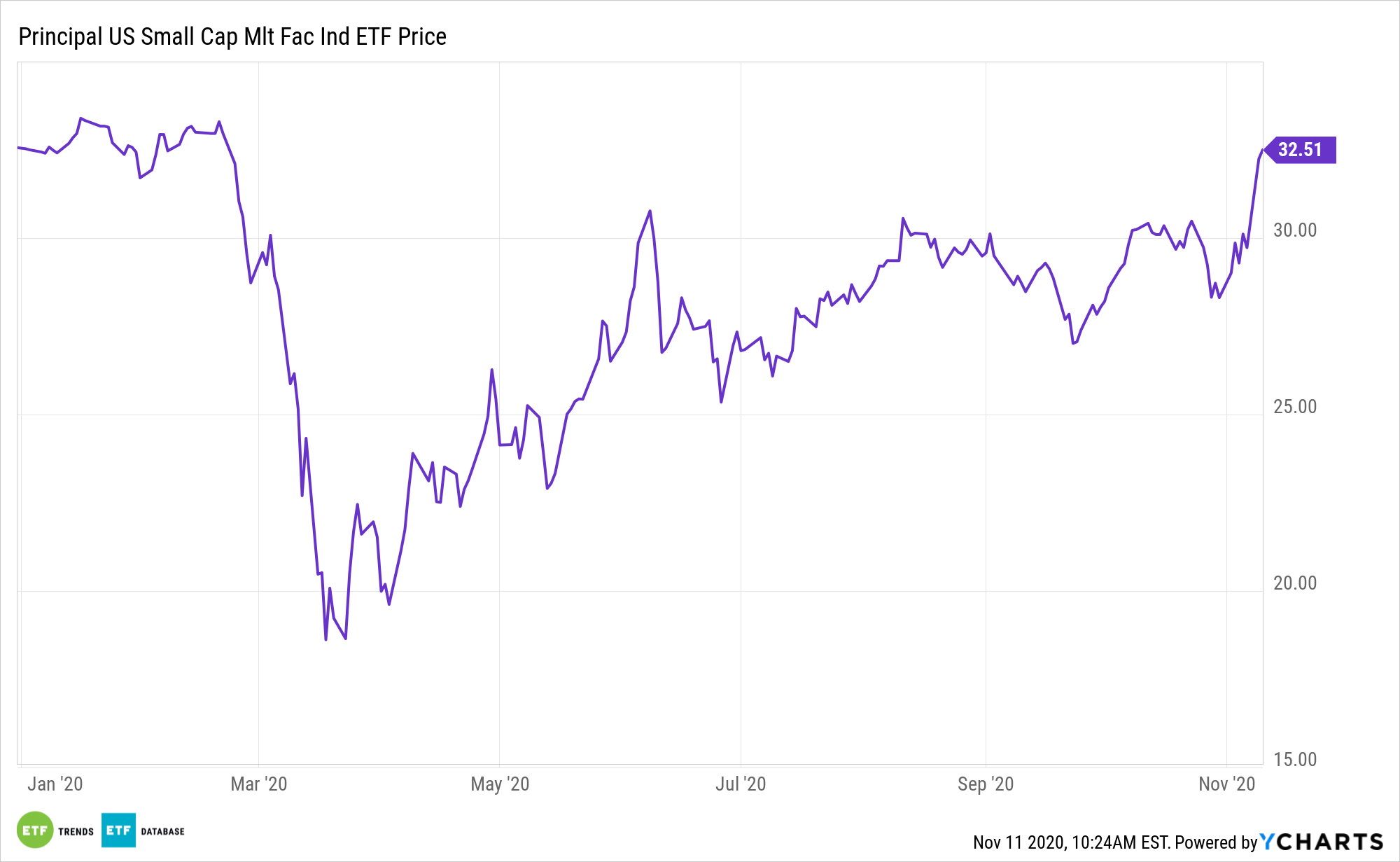Small-cap stocks are roaring, providing opportunity with exchange traded funds like the Principal U.S. Small-Cap Multi-Factor Index ETF (NASDAQ: PSC).
PSC’s underlying benchmark, the Nasdaq US Small Cap Select Leaders Index, “uses a quantitative model designed to identify equity securities (including growth and value stock) of small-capitalization companies in the Nasdaq US Small Cap Index (the ‘parent index’) that exhibit potential for high degrees of sustainable shareholder yield, pricing power, and strong momentum while adjusting for liquidity and quality,” according to Principal.
The Russell 2000 Index, a broad-based small-cap gauge, hit a record high Monday. Further adding to the allure of smaller stocks and PSC is widespread participation in this upward move.
“This is a sign of broadening participation. It should not be overstated how bullish it is for the market. I think it argues for a continued recovery,” said Oppenheimer’s Ari Wald in an interview with CNBC. “On a relative basis, we see small caps have been in decline since 2013. I think this is, how we count it, the longest stretch of small cap underperformance since the seven-year period 1983 to 1990 — seven years — so I think it’s reasonable for small caps to play catch-up.”
PSC Having Its Moment
These days, PSC’s quality lean is proving meaningful for investors. That’s important because smaller companies often sport higher leverage and are more rate-sensitivity than their large-cap counterparts. Bolstering the case for PSC are improving small-cap earnings revisions, confirming the group has some earnings momentum.

“Wald believes the small-caps rally can continue. To take advantage of the move, he has pinpointed one corner of the group that looks primed to break out even further,” according to CNBC.
Momentum investing is rooted in the notion that securities that are on torrid paces will continue acting that way over the near-term while laggards will continue slumping. Long-term data for the momentum factor are compelling, but the factor can be volatile. PSC mitigates some of that turbulence by introducing shareholder yield to the equation, a strategy that adds a dash of quality to the portfolio.
Momentum investing can also target companies that are exhibiting high levels of growth. The momentum factor selects company stocks that have recently outperformed based on the idea that “the trend is your friend” and that stock market leaders typically continue to outperform. This type of strategy can be an effective way of targeting growth-oriented companies since stocks with positive momentum often continue to generate strong earnings.
For more on multi-factor strategies, visit our Multi-Factor Channel.
The opinions and forecasts expressed herein are solely those of Tom Lydon, and may not actually come to pass. Information on this site should not be used or construed as an offer to sell, a solicitation of an offer to buy, or a recommendation for any product.

